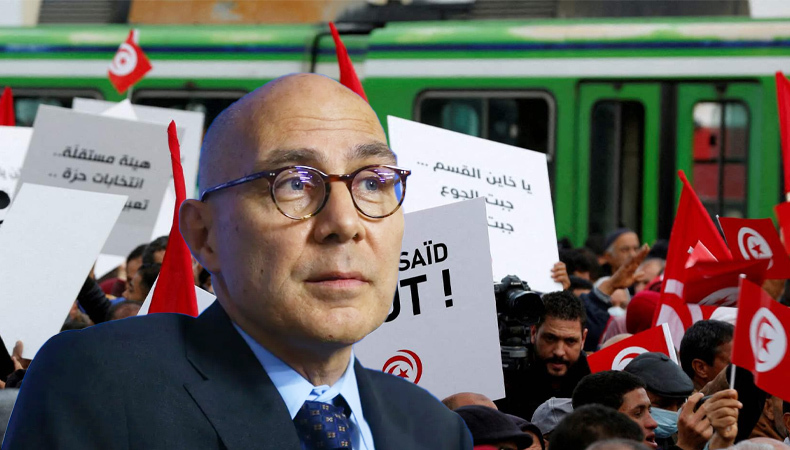UN rights chief: Tunisia must “change course” in the face of a crackdown on the media

On Friday, Volker Türk, the UN High Commissioner for Human Rights, expressed grave concern about the growing limitations on Tunisia’s press freedom and freedom of expression, noting that ambiguous legal provisions are being used to criminalize independent journalism and stifle government criticism.
Also Read – Tunisian president proposes taxing the wealthiest
Türk said, “It’s scary to see Tunisia, a country that was once full of hope, going backwards and giving up the gains it made in human rights over the last ten years.”
He said that the crackdown that started earlier this year against judges, politicians, labour leaders, businesspeople, and members of civil society has now reached independent journalists. More often, they are bothered and kept from doing their jobs. I think Tunisia should change how it does things.
Six journalists were interrogated, detained, and found guilty on five separate occasions by Tunisian authorities over the previous three months. This includes laws about security and counterterrorism as well as the presidential decree No. 2022-54 on cybercrimes, which contains ambiguous provisions that carry harsh fines and lengthy prison terms for disseminating purportedly false information, news, or rumors and authorizes law enforcement officials to access any information system or device for inspection and data collection.
The majority of these situations are not following the stringent standards set forth by international human rights law, including the principles of necessity and proportionality, regarding the limitations placed on these journalists’ freedom of expression.
21 cases of alleged human rights violations against journalists have been documented by the UN Human Rights Office in Tunisia since July 2021. These cases include prosecutions by both civilian and military courts. There is reason to think that these prosecutions were started in response to public criticism of the government or the president of the republic. All public figures, including heads of State, are legitimate targets of criticism under international human rights law.
The Parliament Bureau decided on June 15 to forbid journalists from attending meetings of parliamentary committees. A judge banned media coverage of two cases of alleged “conspiracy against State security affairs” on June 17. These cases have involved the detention and prosecution of dozens of individuals since mid-February.
“These choices go against the idea that public affairs should be open to the public. The High Commissioner says that people have a right to know things, and that journalists must be able to do their jobs without being hampered too much.
“A concerted effort to shut down the voices of journalists undermines the important role of independent media, which is bad for society as a whole,” the speaker said.
Also Read – Four dead in attack near Tunisian synagogue
The High Commissioner urged Tunisian authorities to adhere to the principles of due process and a fair trial in all judicial proceedings, stop trying civilians in military courts, and free all people who have been arbitrarily detained, including those who have been held for exercising their right to seek, receive, and disseminate information.




